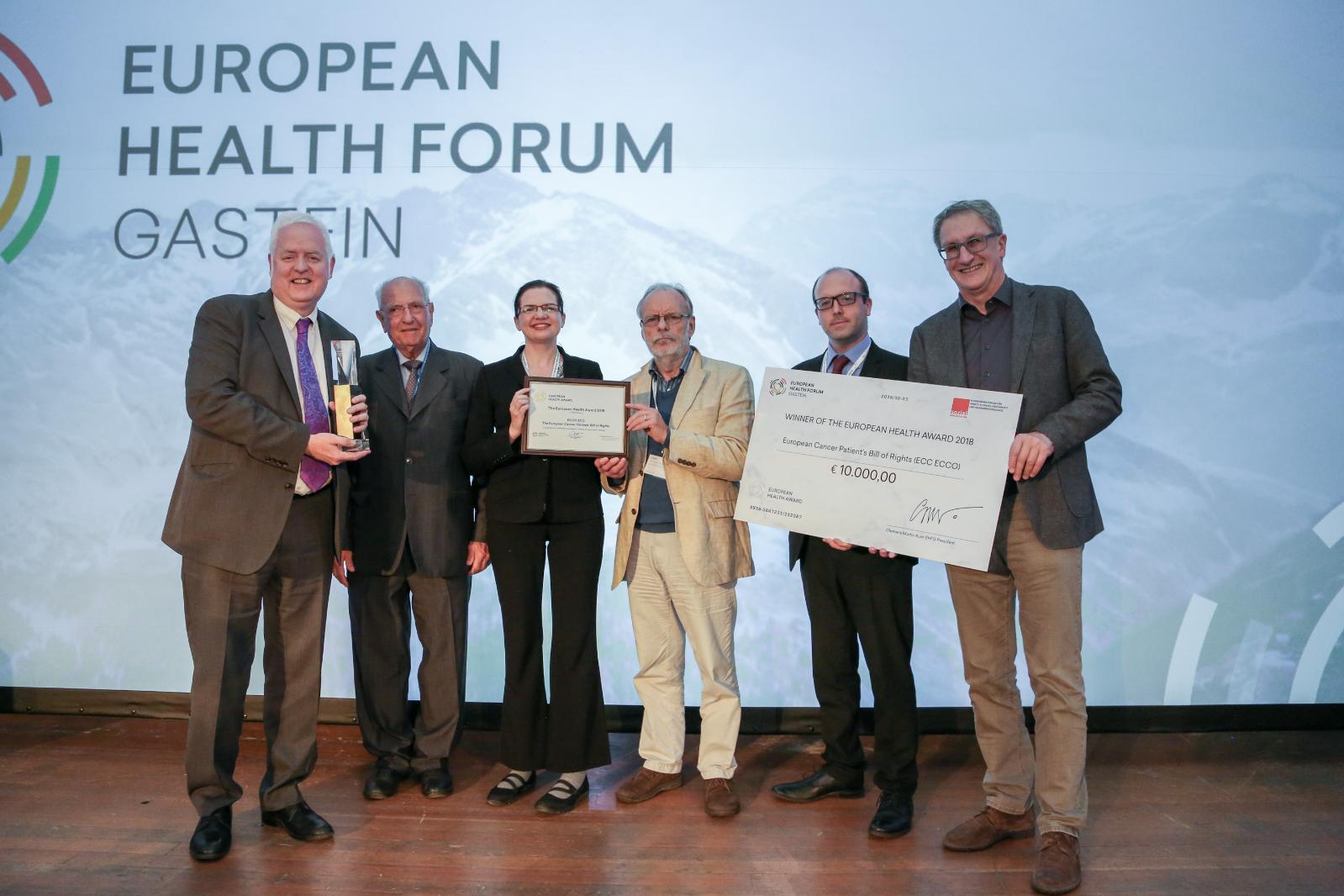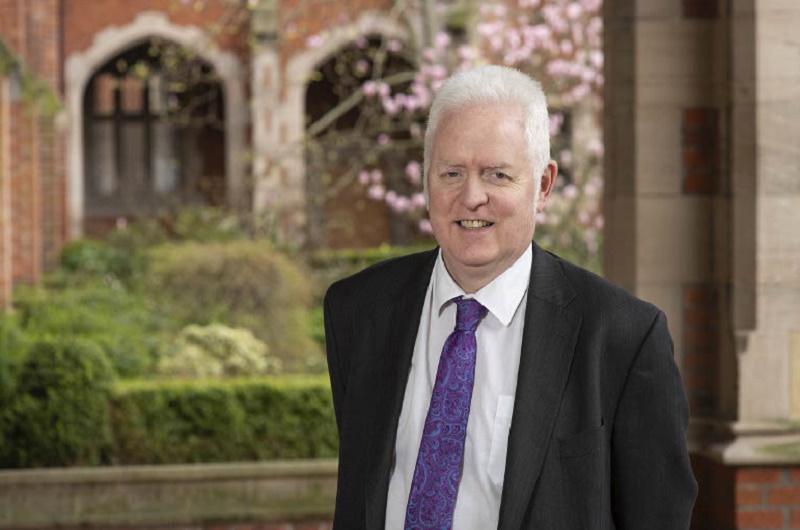Queen’s led research wins The 2018 European Health Award
Researchers from Queen’s University Belfast and the University of Leeds, as part of a pan-European partnership have won the prestigious 2018 European Health Award.

This award honours initiatives that help tackle some of Europe’s most pressing health challenges.
The award-winning project, entitled ‘The European Cancer Patient’s Bill of Rights: A Catalyst for Change and an empowerment tool for cancer patients across Europe’ involves an equal partnership between cancer patients, healthcare professionals and cancer researchers.
Professor Mark Lawler, Chair in Translational Cancer Genomics CCRCB, Queen’s University Belfast and chief architect of the Bill of Rights received the award on behalf of the partnership during the opening ceremony of the European Health Forum Gastein, the premier European Health Policy Conference and an official event of the Austrian European Council Presidency.
Professor Lawler commented: “Cancer knows no borders, so it is important that we work together to develop solutions that address cancer inequalities in all parts of Europe. I am immensely proud to be accepting this award, not only on behalf of our team who have worked together over the last five years on this initiative, but also on behalf of the millions of European citizens who are living with and beyond cancer, and experiencing cancer inequalities every single day of their lives.”
Margaret Grayson, cancer survivor and Chairperson of the Northern Ireland Cancer Research Consumer Forum, said: “The news that the European Cancer Patient's Bill of Rights has received a top European award is wonderful. This collaborative initiative has patients absolutely at its centre. It is especially pleasing that Professor Lawler will be collecting this award at Gastein, given Northern Ireland's leadership role in the project.”
Roisin Foster, Chief Executive of Cancer Focus Northern Ireland (Cancer Focus NI), an ECL member said: “We at Cancer Focus NI are delighted that the European Cancer Patient's Bill of Rights has received a top European award. We worked very closely with the European Cancer Concord and adopted the 2nd article of the Bill of Rights on access to treatment underpinned by research and innovation to help drive our cancer inequalities campaign, which recently resulted in the Department of Health announcement on making innovative treatments available to cancer patients in Northern Ireland.”
One of the key outputs from the research has been the development of a 70:35 Vision, 70 per cent long term survival for all cancer patients across Europe by 2035. “Our 70:35 Vision is built upon the pillars of cross border and interdisciplinary cooperation, sharing best practice and ensuring that research and innovation gets translated for the benefit of patients,” explained Professor Peter Selby, Professor of Cancer Medicine at the University of Leeds and President of ECC. “This is a superb example of how cooperative European activities that involve sharing best practice can result in top class prize-winning initiatives.”
In a joint statement, Professor Ian Greer, President and Vice-Chancellor of Queen’s University Belfast and Professor Sir Alan Langlands, Vice-Chancellor of the University of Leeds welcomed the award: “The European Health Award is a prestigious award that recognises the very best of the European collaborative approach, involving over 60 stakeholders from 25 European countries, working together for the benefit of patients. We are immensely proud that an initiative, which was initiated at Queen’s University in Northern Ireland, and where Leeds University and Queen’s have demonstrated their strong leadership, has been recognised across Europe as a quality exemplar of best practice."
Working in close partnership with European patient organisations and professional societies has been a key part of the initiative.
"We at the European Cancer Patient Coalition (ECPC) are delighted to be part of this joint success,” Lydia Makaroff, Director of the European Cancer Patient Coalition, added. “The ECPC has been a crucial partner in the European Cancer Patient's Bill of Rights since it was launched in the European Parliament on Word Cancer Day in 2014, and has worked tirelessly to find solutions to the disparities that cancer patients experience across Europe.”
“To fight cancer is a challenge for patients, families, doctors, researchers and industry, said Rafal Swierzewski, President of COCARDA Foundation, Poland. Only through strong and sustainable cooperation can this fight be maintained. The differences and inequalities in cancer care and survivorship in Europe are clear for all to see. We need to put more efforts into supporting cancer research and cancer care development in Central and Eastern European(CEE) countries. As a cancer patient from one of CEE countries, I am proud that we have such a person as Professor Lawler on board, showing openly the inequalities and bringing them forward at European level to develop solutions.”
Speaking at the award ceremony, Professor Lawler said: “Cooperation is the key to this initiative. We need to compete, not against each other, but against our common enemy – Cancer.” He also honoured three sadly departed Irish cancer leaders who were involved in the initiative, Prof Donal Hollywood, Prof John Fitzpatrick and in particular Prof Paddy Johnston who worked very closely with Prof Lawler on this initiative, hoping that “those three proud Irishmen were looking down on this proud Irishman” as he collected the award.
Professor Mark Lawler
Featured Expert
